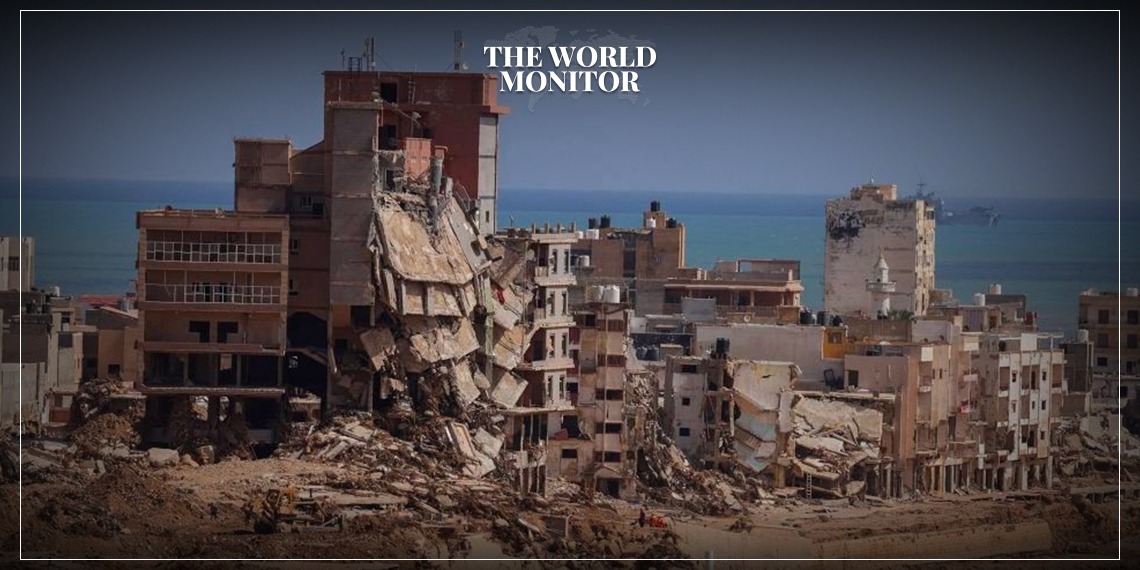In the wake of devastating floods in the Green Mountain region of Libya, President of the Libyan Presidential Council, Mohammed Al-Manfi, has called for the development of a clear and comprehensive plan for the reconstruction of Derna city and the areas heavily affected by the floods.
He emphasized the need to enhance financial transparency, improve mechanisms for monitoring corruption, and seek assistance from United Nations experts, according to a statement from the Presidential Council’s media office.
During a regular meeting of the National Planning Council held in Tripoli, President Al-Manfi presided over the proceedings alongside Council Chairman Ahmed Abreeda, directors of council departments, heads of regional planning councils, and a group of experts and advisors from Derna.
President Al-Manfi began his address by expressing condolences to all residents of the disaster-stricken areas, highlighting that the tragic events have deeply affected all Libyans. He emphasized that Libyans have come together to help and support these regions in their time of need, each contributing within their respective fields of expertise.
Al-Manfi conveyed several recommendations aimed at aiding the rebuilding and reconstruction efforts in the affected regions. He proposed the formation of a post-disaster management team comprised of trusted experts and specialists in the fields of administration, planning, communications, and construction. This team would be responsible for handling the situation, making swift and appropriate decisions.
Furthermore, Al-Manfi stressed the importance of preparing a clear and comprehensive plan for post-disaster management, reconstruction, and resource and fund management. This plan should also include evaluating the resulting damages and identifying areas in need of repair, renovation, or reconstruction, while providing support and assistance to those affected by the floods.
In addition to these measures, President Al-Manfi called for actions to enhance financial transparency, strengthen oversight, and improve accountability. He suggested the utilization of mechanisms for detecting corruption and sought assistance from experts affiliated with the United Nations. These experts would play a supportive role through technical teams.
The Libyan Presidential Council’s proactive approach demonstrates its commitment to addressing the challenges faced by flood-affected regions swiftly and comprehensively. The call for transparency and anti-corruption measures aligns with international standards and aims to ensure that resources are effectively utilized in the reconstruction efforts.
As Libya endeavors to rebuild these areas and support their residents, international collaboration and expert guidance will play a vital role in ensuring a successful recovery process.






